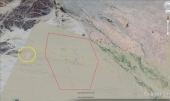I may be bit late to the game since I just signed up for the forum today, but in the event that it can still help, I'll throw some advice in for posterity.
I lived for 8 years in southern NV, and tried various methods of producing viable crops (non-commercial) on small properties. There were a few notable lessons here that can give you an idea of the kind of soil to expect.
Most of the Southern NV area (Clark & Nye Counties) have a sandy/clay soil, the lower the elevation the more clay there will be. Average pH levels before irrigation ranged from 7.3-7.9 Soil testing showed high levels of minerals like calcium, iron, magnesium, etc, but my guess is they are not very bio-available since it took 1 year of cover cropping and use of deep miners after one season of what appeared to be struggling plants.
The largest issue I have faced is that most land is severely compacted, and drainage is virtually zero. The amount of earthworks involved to allow for acceleration of development of any kind of plan would outweigh the
cost per acre "benefit" in most cases. There is also the sticky issue of Caliche. I have had a property where I was on a solid slab of the damnable stuff after going down about 30", and have worked on a couple places where all you will find are scattered plates of it.
I had spent a month investigating (probably similar to the OP) Northern NV after spotting various plots of land with average prices of $15k for about 25 acres of land. These properties do not qualify as scrub desert or edge desert at all. If there was any significant life there at one time, large scale strip-mining and excavation has destroyed it. The groundwater is heavily contaminated with metals and the hardness is through the ceiling. In many cases the topsoil starts about 3" below fine particulate sand (I had found there to be a lot of Gypsum from a nearby excavation) most of the year, and past that the soil is reasonably decent, albeit with an expected slow rate of water penetration. If you intend to buy properties near former or current mining towns, expect your land to be pH to be 7.9 or higher. Talking to locals helped me to understand that mining companies fill back land with material they dig out an cannot use when getting ready to leave an area.
My ultimate decision was to relocate to easier to work areas like northwestern AZ or southern UT. I'd much rather spend a little more $$$ and be able to establish something right away, than get dirt cheap land like that and spend a year or more (manpower and cost) remediating land.
Hope this helps!





 I am shopping for land in a few states in the west, Nevada being one of them. Nevada is a very competitive location because it is possible to buy land there for as low as $1k per acre, even in small parcels. I am also fascinated by deserts - actually, any kind of environment. I would like some help with this process - buying land. I know nothing about mineral rights and water rights. Can someone give me some insight? Also, is there some service that I can use to verify the claims that landlords or RE agents make about land? I have horrible images in my head of me setting up a small homestead only to be displaced by someone who wants to dig a copper mine where my house or barn are, or have to deal with a couple thousand head of cattle that are allowed to intermittently graze on my property. Or to discover that some local tribe of Native Americans has the right to have a pilgrimage across - and on - my land (not that I have anything against Native Americans - I really don't want ANYONE coming on to my land! That is why I am looking in a remote area.) Have I left out anything? I am a little bit familiar with the geological and geographical aspects of desert land (still have much to learn) but know almost nothing about the political side (legal, etc). Referrals to other posts or websites are welcome. Search words are welcome as well.
I am shopping for land in a few states in the west, Nevada being one of them. Nevada is a very competitive location because it is possible to buy land there for as low as $1k per acre, even in small parcels. I am also fascinated by deserts - actually, any kind of environment. I would like some help with this process - buying land. I know nothing about mineral rights and water rights. Can someone give me some insight? Also, is there some service that I can use to verify the claims that landlords or RE agents make about land? I have horrible images in my head of me setting up a small homestead only to be displaced by someone who wants to dig a copper mine where my house or barn are, or have to deal with a couple thousand head of cattle that are allowed to intermittently graze on my property. Or to discover that some local tribe of Native Americans has the right to have a pilgrimage across - and on - my land (not that I have anything against Native Americans - I really don't want ANYONE coming on to my land! That is why I am looking in a remote area.) Have I left out anything? I am a little bit familiar with the geological and geographical aspects of desert land (still have much to learn) but know almost nothing about the political side (legal, etc). Referrals to other posts or websites are welcome. Search words are welcome as well.
 2
2





















